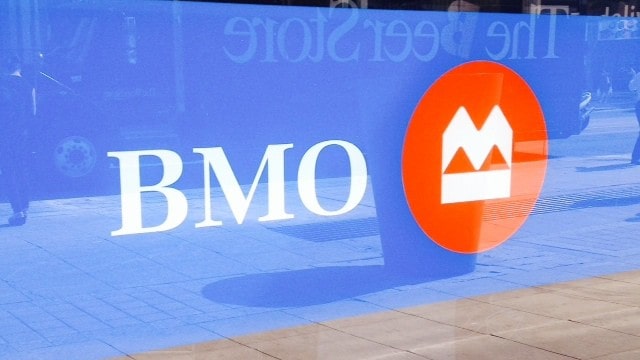The S&P/TSX Index fell another 33 points on February 7. In what has been a slow and steady trend, the TSX has dropped 5.4% in 2018 thus far. The Canadian dollar also dipped to a four-week low on February 6, as the U.S. dollar rebounded on promises of rate tightening south of the border.
The stock market plunge comes ahead of Canadian bank earnings season, which will kick off in late February and early March. The Big Six banks will be looking to build on record profits in 2017, with some analysts sounding alarms over the possibility that earnings may recede this year. Still, Canadian banks stocks have fared far better than other dividend-yielding favourites like utilities, telecom, and real estate stocks.
Global growth remains strong, and the International Monetary Fund recently boosted its expectation for Canadian economic growth to 2.3% in 2018 and 2% in 2019. Canada also saw unemployment drop to its lowest point since the 1970s in December 2017, and inflation rose unexpectedly to 2.1% in November 2017. These positive fundamentals should inspire some optimism for banks in 2018, especially with loan margins improving on rising interest rates.
Let’s look at a few Canadian bank stocks that have been battered to start the year and could come at a discount before we get a look at first-quarter earnings.
Bank of Montreal (TSX:BMO)(NYSE:BMO) stock has dropped 2.7% in 2018 as of close on February 7. BMO has stood out as the first major Canadian bank to make a foray into the cannabis market. In the 2017 fourth quarter, BMO reported that its net income dropped to $1.23 billion from $1.35 billion in Q4 2016. The bank was forced to absorb reinsurance claims of $112 million due to hurricanes in the United States.
BMO boasts a quarterly dividend of $0.93 per share, representing a 3.8% dividend yield. It also possesses a sizable U.S. footprint and could see a boost from tax reform that was enacted by the Trump administration.
Shares of Canadian Imperial Bank of Commerce (TSX:CM)(NYSE:CM) have declined 4.9% in 2018. CIBC posted earnings in the fourth quarter of 2017 that surprised analysts. The bank saw its profit rise 25% to $1.16 billion in large part thanks to the performance of its U.S. commercial banking and wealth management unit. Net income in this segment more than quadrupled to $107 million from $23 million in the prior year.
CIBC delivered a quarterly dividend of $1.30 per share, representing a 4.4% dividend yield.
Toronto-Dominion Bank (TSX:TD)(NYSE:TD) stock has declined 2.6% in 2018. TD Bank was outshone by CIBC and its own earnings in the previous quarter when the banks released fourth-quarter results on the same day in late 2017. However, results were still very strong with net income rising to $2.71 billion compared to $2.3 billion in Q4 2016. For the full year, net income was $10.5 billion over $8.9 billion in 2016.
TD Bank last offered a quarterly dividend of $0.60 per share with a 3.3% dividend yield. The bank boasts the largest U.S. footprint out of any of its peers. TD leadership predicts that U.S. tax reform will be a net positive for earnings in the long term.







